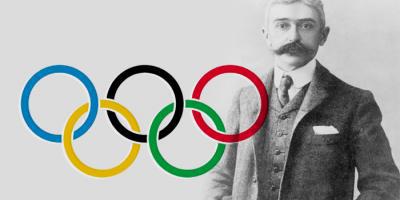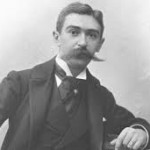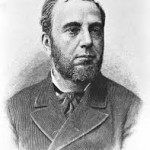OLYMPIC FOOTBALL TOURNAMENTS 1896 – 1900
IFFHS publish his work with exact and documented details about the history of the Olympic football tournaments from the beginning of the Olympic Games in 1896 to the Olympics 1936.
1896 – Athens
———————————————————————————————————–by IFFHS—
Through great persuasion (one of his many gifts), French Baron Pierre de Coubertin (1.1.1863-2.9.1937) managed to revive the ancient Olympic Games in their modern form. Thus, in June 1894, the “Comité International des Jeux Olympiques” – renamed “Comité International Olympique” (CIO) a few years later – was founded at Sorbonne University (Paris) in the presence of 78 delegates from 14 countries. The first ever edition of the modern Olympic Games took place in Athens in 1896. Polyglot Dimitrios Vikelas (15.2.1835-20.7.1908) of Greece, who had lived for many years in Turkey, England and France and was considered a great organiser and agitator, was elected the first CIO president. Pierre de Coubertin was the CIO general secretary.
In 1898 the two had a fundamental disagreement, whereupon Vikelas left the International Olympic Committee (IOC) and Coubertin assumed the presidency. (Coubertin was French, but also had Italian ancestors.). The bone of contention was that the Greeks wanted their country to host the Olympic Games (which were to take place every four years) permanently, whereas Coubertin and his supporters preferred the games to be awarded to a different country every time.
It was being debated in Paris which disciplines were to be included in the Olympic two years later. One of them was football, and during the follow-up period, there were efforts in several countries to organise an Olympic football team. However, they would come to nothing for both lack of funds and a national football association. Thus, from April 6-15, 1896, 43 Olympic champions were decided in only nine disciplines – which did not include football – after the rowing competition was called off because of stormy weather.
- Pierre De Coubertin
- Dimitrios Vikelas
————————————————————————————————————————
1900 – Paris
———————————————————————————————————-by IFFHS—
The second Olympic Games took place in Baron Pierre de Coubertin’s home city of Paris, but in the shadow of the world fair which was being held at the same time. Many of those who organised this huge exhibition saw the Olympic tournament as a distraction from their own show and acted to influence it negatively. Thus the Olympic Games dragged on from May 14 to October 28, 1900, and the French public saw them as a championship of sorts rather than the Olympic tournament they were. 1,500 athletes (one third of them French) from 23 countries competed in 23 disciplines, including – for the first time – five disciplines for women. There was little public interest and the organization was very poor, and to this day, not all competitions and results are known. There was no opening or concluding ceremony, either.
Despite great efforts by Pierre de Coubertin, football players and officials showed little interest in an Olympic football tournament, and in many countries in Europe the matter did not go beyond the discussion stage. Since no national football teams could be recruited for the Olympics, an attempt was made to get national footballchampions to participate. None of them, however, was willing to travel to Paris, not even the Belgian champions Racing Club de Bruxelles.
Thus the Belgian football association asked popular forward and all-round sportsman Frank König to assemble a league selected team. When he failed, the “Fédération Universitaire” was asked for help, but it could not find enough students for a team. Newspapers advertisements were tried as a last resort. In the end, an all-student side was assembled which included “Henk” van Heuckelum from the Netherlands and Eric Thornton from England. This Belgian team, which numbered only ten players, travelled to Paris, where Eugène Neefs who happened to be present, brought them up to full strength.
As all Olympic athletes had to be amateurs, none of the first- and second-division teams in England were allowed to compete in Paris, because these were all professional. Eventually, lower-division London club Upton Park FC agreed to travel to Paris. From 1893 to 1910, Upton Park had never made the final four in the English amateur cup.
The French champions in 1899 and 1900, Havre Athletic Club, were not willing to participate, and the “Union des Sociétés Françaises des Sports Athlétiques” (USFSA) asked runners-up Club Français de Paris to participate, possibly to also attract more spectators and keep down expenses. This team, bolstered by three players from another Paris club, did not wear club colours, but white jerseys with the five rings of the Olympic Games. The three guest players included Eugène Fraysse (Racing Club de Paris), who also played a leading role within the USFSA. The other two were his clubmates Gaston Peltier and R. Duparc.
Sports historians have consistently tried to declare the two football matches played in Paris in September 1900 as an Olympic football tournament. This is not logical, however, as at a tournament involving three participants, each team would either have had to play against every other team, or else the winner of the first encounter would have had to play against a third team. Neither was the case, nor did any national teams participate, not even the national champions. None of three national football associations lists these matches as full “A” internationals, nor were they retrospectively declared as such. This would, in fact, counter against FIFA’s definition of a full “A” international. The two football matches played in Paris on September 20 and 23, 1900, were merely for demonstration and were presented so as to hide the embarrassment of an Olympic football tournament which never materialised. Therefore, they can only be considered to be friendlies.


